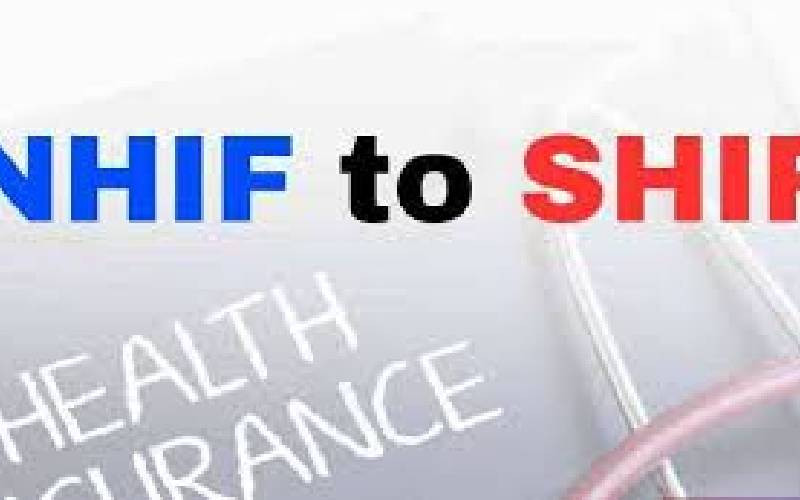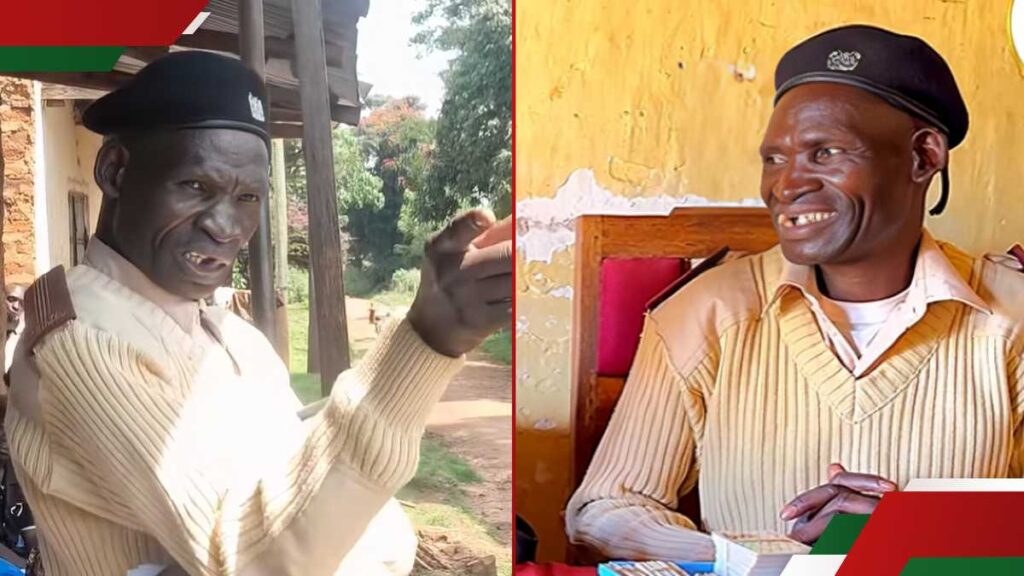The High Court has singled out a problem and a grave government blunder regarding the Social Health Insurance Fund (SHIF) contribution by the salaried workers.
In his judgment, Justice Chacha Mwita said that the 2.75 per cent deduction from gross income is double taxation and, therefore, illegal.
According to the Judge, the law clearly states that only income tax is withheld from gross income; therefore, no other deductions can be made from an employee’s total earnings.
He asserted that any further deductions, after the payment of income tax, introduce an unlawful and harmful component that constitutes double taxation.
“There can be no other gross income from which the person can again contribute 2.75 per cent to the Fund under SHIA and the regulations made thereunder. Any subsequent or other statutory eduction(s) based on the person’s gross income after income tax, is undoubtedly double taxation, charge or levy because the same gross income will have been taxed more than once under the Income Tax Act and the regulations made under SHIA as contribution to the Fund,” said Justice Mwita.
The judge, however, declined to issue any order after finding there was a separate case before the Court of Appeal.
“By providing that a person contributes 2.75% of his/her gross income to the Fund after paying income tax from the same gross income, the regulation introduces a negative element of taxation which is double taxation and would, as a result, make such a regulation unlawful,” he said.
The case was filed by four medical doctors.
They told the court that Kenyans are getting raw health coverage from the government despite paying more than a premium for insurance coverage from the private sector.
At the same time, they were challenging the transfer of their data from the National Health Insurance Fund (NHIF) to the Social Health Authority (SHA).
In their case, Dr Clarence Eboso, Dr Darwin Abuka, Dr Cherono Siele, and Dr. Bosibori Ondari claimed that there is no guarantee that their data is secure,
They added that they did not consent to be enrolled on the new scheme.
They claimed that the involvement of Apeiro Limited, a company with links to Adani Group, in the Universal Health Care (UHC) system management is reason enough for Kenyans to worry about their data. They also claim that India is among the countries known for hacking and lack of data protection.
Stay informed. Subscribe to our newsletter
Apeiro holds the largest stake in a consortium that was awarded the Sh 104 billion deal to provide an Integrated Healthcare Technology System (IHTS) for the UHC program.
“The fact that the Ministry single-sourced a consortium of Health Information System providers to handle health data under the Social Health Authority, one partner of whom is originally registered in a jurisdiction with a poor data privacy record, creates a real concern that safety of our personal data is not guaranteed,” the medics claimed.
According to them, the health scheme by the Kenya Kwanza government is inferior and expensive; they argued that Kenyans will pay more but will get lower premiums from the scheme.
“The regulations have provided tariffs where benefits drawn from the fund from contributions do not even nearly match the free market, thereby compelling Kenyans to apply their private property in an inferior insurance cover,” the four medics claimed.
They argued that despite the High Court finding that the government had unfairly targeted employed people, it has not remedied the situation or devised a means to ensure that all pay is equitably distributed to all
They argue that setting the rate to pay for SHA as a percentage of gross income amounts to double taxation as Pay As You Earn (PAYE) already taxes the gross income.
The court heard that those with pay slips will be hit harder than those who are either doing business or not employed.
“Salary is not necessarily the only source of income for all employed persons in Kenya; therefore, although the intention is to deduct the same percentage of a person’s income, employees who derive their income solely from salary would be hit harder by the provision,” they argued.
Dr Cherono was the first to swear an affidavit in the case. She said she works as a pediatric registrar at Moi Teaching and Referral Hospital and is an employee of Kericho County.
She stated that she was an NHIF member and was getting the comprehensive civil servant medical cover.
“I would make a contribution of Sh1700 monthly from my post-tax income, and my employer would pay NHIF a lump sum annual amount to enhance its employees’ cover,” she said.
According to her, the NHIF cover was enough to provide adequate cover to her and her family. “ I did not seek further insurance or seek out-of-pocket payments,” she said, adding that it has so far sorted the family’s health needs.
However, she lamented that her household will now be required to pay SH 21,000 per month for SHA. In total, according to her, they will pay Sh252,000, which is 10 times what she was initially paying for NHIF.
“The benefits I would draw from this exaggerated contribution from SHIF are totally inadequate for myself, let alone my household,” she added.
The doctor narrated that previously, she was not required to pay anything for medication. However, according to her, the family will be required to cough up Sh9000 monthly for medicines and lab tests.
“This is because the Social Health Insurance Fund (SHIF) will only cover my household at Sh43000 per household per year when my monthly cost of treatment averages Sh9500 per month,” said Cherono.
She was of the view that it goes against logic to have a cover that offers less than those in the private sector but is more expensive. She stated that for Sh250,000, one would get a comprehensive insurance cover with an international lever cover even for those with re-existing conditions in the private sector.
“With the new model, it makes more financial sense for my household to obtain insurance from the open market,” added Cherono.
She accuses the government of forcing her to join a scheme that will not benefit her.
“This new fund is being imposed on me because I would ordinarily not sign up to such a raw deal voluntarily. This imposition violates my rights to property and privacy. SHIF should not be mandatory,” she said.
Dr Eboso, on the other hand, said that she was concerned that NHIF had transferred her data without seeking her consent. She argued that the government should know that India is one of the bottom five countries in terms of data privacy.
She said the government did not allow her to look into the SHA terms after her data was transferred.
“The fact that the first respondent is aware of their obligations, but still violates the rights of the data subjects, is concerning and suggests that their actions are not in good faith. I have not signed any consent form allowing the Social Health Authority to process my personal data as required by the Data Protection Act,” she argued.
The four sued SHA and the Attorney General. They also added the Law Society of Kenya, the Ministry of Health, the National Health Insurance Fund, the Federation of Kenya Employers, and the Ministry of Health as interested parties. They are seeking orders to stop the Social Health Insurance Fund deductions and an order dictating that the government should not force them to join the scheme.
In their response, the government argued that the case was moot as there was an existing appeal by the Health Cabinet Secretary against Joseph Enock Aura and 13 others. At the same time, it argued that there was another unresolved case filed by Busia Senator Okiya Omtatah over the same issue of SHIF contribution.
The court also heard that the doctors had not exhausted the dispute resolution mechanisms.
Nevertheless, the government claimed that SHIF was mandatory for all Kenyans and had a way of assessing how much each person, both employed and unemployed, ought to pay to actualise universal health coverage.

























